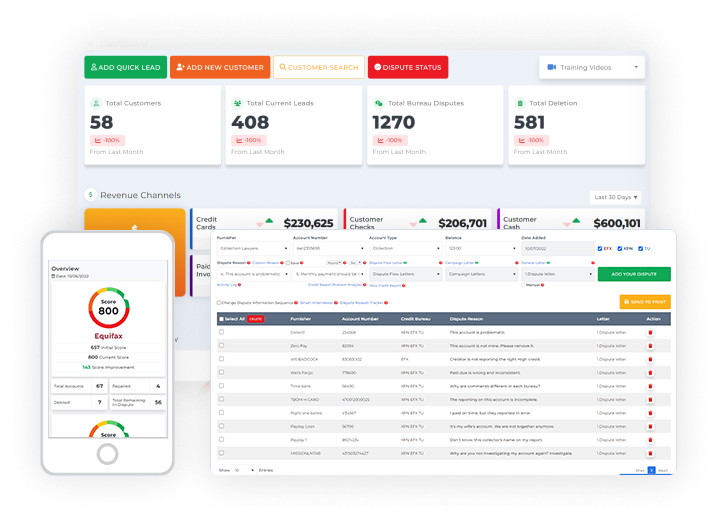If you’re considering starting a credit repair business in Washington, you’re entering a dynamic industry that requires adherence to specific laws and regulations. In this article, we will provide you with an overview of the legal landscape, equipping you with the knowledge needed to navigate the intricacies of starting a credit repair business in Washington.
Business Formation

You will need to choose a legal structure for your business, such as a sole proprietorship, partnership, corporation, or limited liability company (LLC). Register your business with the Washington Secretary of State.
In Washington state, credit repair companies can choose from several business formation options, including:
Sole Proprietorship:
A sole proprietorship is the simplest and most common form of business entity. It is owned and operated by a single individual who is personally responsible for all debts and liabilities of the business.
Partnership:
A partnership is a business entity owned by two or more individuals who share profits and losses. Each partner is personally responsible for the debts and liabilities of the business.
Limited liability company (LLC):
An LLC is a hybrid business entity that combines the liability protection of a corporation with the tax benefits of a partnership. Owners of an LLC are not personally liable for the debts and liabilities of the business.
Corporation:
A corporation is a separate legal entity from its owners and provides the greatest liability protection for its owners. Corporations are owned by shareholders and are subject to strict formalities and reporting requirements.
Business Name

If you choose to operate under a different name than your legal business name, you will need to register a “Doing Business As” (DBA) name with the state. Here are some tips to help you come up with a great business name:
- Consider Your Target Audience: Think about who your ideal clients are and what kind of name would appeal to them. A name that is too generic or too complex may not resonate with your target audience.
- Use Descriptive Words: Consider using words that describe your business or the benefits of your services, such as “credit boost,” “credit fix,” or “credit recovery.”
- Keep It Simple: A simple and straightforward name is often easier to remember and more effective than a complex or overly clever name.
- Check For Availability: Before finalizing your business name, be sure to check that it’s available for use and not already trademarked by another business.
- Get Feedback: Ask friends, family, or colleagues for feedback on your potential business name to get a sense of how it’s perceived by others.
Federal Employer Identification Number (EIN)
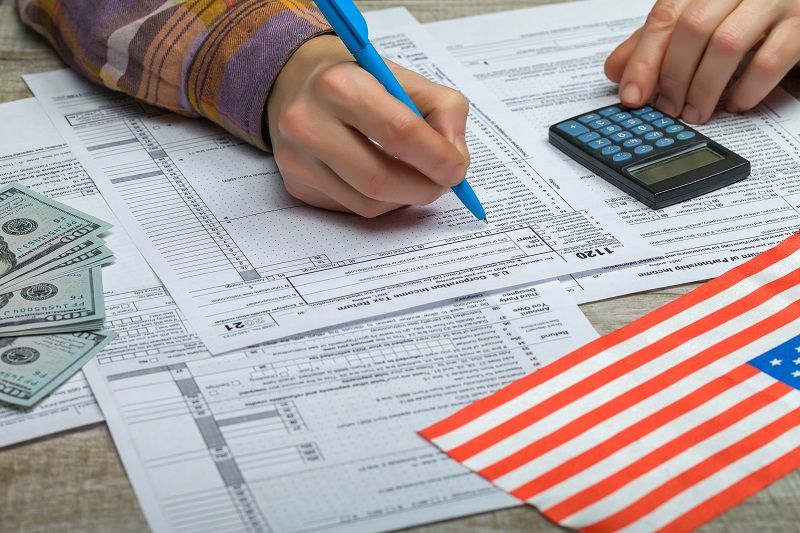
Apply for an EIN from the Internal Revenue Service (IRS) for tax purposes. To apply for an Employer Identification Number (EIN) from the Internal Revenue Service (IRS), you can follow these steps:
Determine If You Are Eligible:
An EIN is a unique nine-digit number that is used to identify your business for tax purposes. You can apply for an EIN if you are a sole proprietor, partnership, LLC, corporation, nonprofit organization, or other entity that requires a federal tax ID number.
Access The Online Application:
The easiest and fastest way to apply for an EIN is through the IRS’s online application system. You can access the application on the IRS website.
Complete The Application:
The online application will ask for basic information about your business, such as your legal name, address, and business structure. You will also need to provide the name and Social Security number (SSN) or Individual Taxpayer Identification Number (ITIN) of the person who will be the “responsible party” for the EIN.
Submit The Application:
Once you have completed the application, you can submit it online. The IRS will immediately assign an EIN to your business, which you can use for tax purposes.
Print And Save Your Confirmation:
After you receive your EIN, be sure to print and save your confirmation page for your records.
It’s important to note that applying for an EIN is free of charge. If you prefer not to apply online, you can also apply by fax, mail, or phone. You can find more information on the IRS website.
State And Local Tax Registration
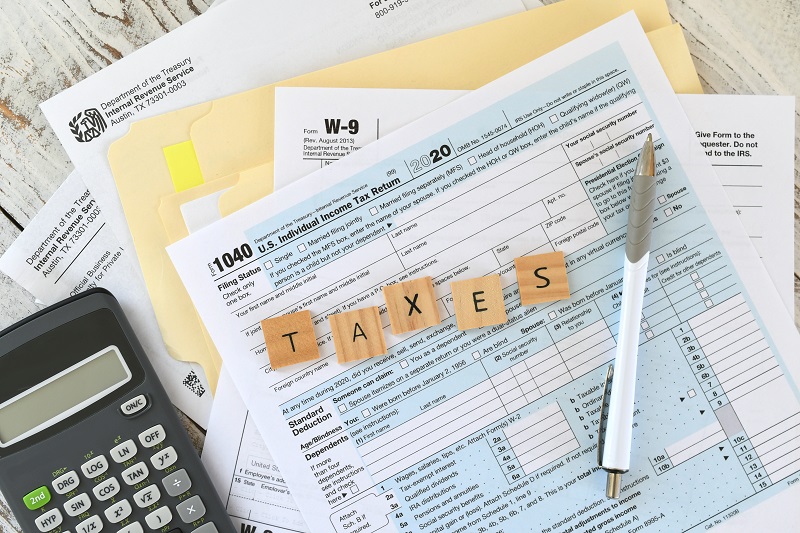
Register your business with the Washington Department of Revenue to obtain a state tax identification number, and check with your local government for any additional tax registration requirements.
To register your credit repair business with the Washington Department of Revenue and obtain a state tax identification number, you’ll need to complete the Business License Application process through the Washington State Department of Revenue’s Business Licensing Service (BLS).
This process will also help you register for your Washington State Business License.
Here are the steps to register your business with the Washington Department of Revenue:
Online Registration:
- Visit the Washington State Department of Revenue’s Business Licensing Service website.
- Click “File a Business License Application” to start the online application process.
- Follow the prompts to complete the application, providing the necessary information about your business, such as the legal structure, owner information, and business activities.
- Pay the required fees using a credit card or an electronic check.
Paper Registration:
- Visit the Washington State Department of Revenue’s Business Licensing Service Forms page.
- Download and print the “Business License Application” form.
- Complete the application form, providing the necessary information about your business.
- Mail the completed application form, along with a check or money order for the required fees, to the address specified on the form.
Surety Bond
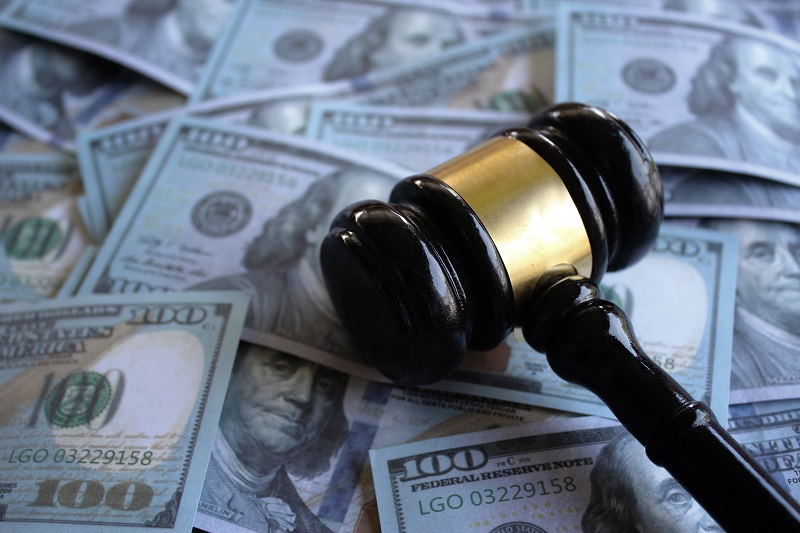
Some states require credit repair businesses to obtain a surety bond to protect clients. While Washington does not have a specific bonding requirement for credit repair businesses, it’s essential to verify if a surety bond is needed based on your specific business operations.
Washington does require a surety bond. The required bond amount is $10,000.
Business Bank Account

Open a dedicated business bank account to keep your personal and business finances separate. To open a business bank account for a credit repair company in Washington, you can follow these steps:
- Choose a Bank: Research different banks in Washington that offer business banking services and compare their fees, account options, and other features.
- Gather Required Documents: To open a business bank account, you will typically need to provide the bank with your business formation documents (such as your articles of incorporation or LLC operating agreement), your Employer Identification Number (EIN) from the IRS, and your personal identification documents (such as your driver’s license or passport).
- Schedule an Appointment: Contact the bank to schedule an appointment to open a business bank account. Many banks offer online appointment scheduling.
- Bring Required Documents to The Appointment: At the appointment, bring all required documents and any initial deposit required by the bank. You may also need to provide additional information about your business, such as your business plan, financial statements, or tax returns.
- Complete The Application: The bank will provide you with an application to open a business bank account. Complete the application and review the terms and conditions carefully.
- Fund The Account: Once your application is approved, fund the account with the initial deposit and any additional funds you wish to deposit.
- Activate Online Banking: Many banks offer online banking services, which allow you to manage your account online. Be sure to activate your online banking account if this option is available.
Washington State Business License
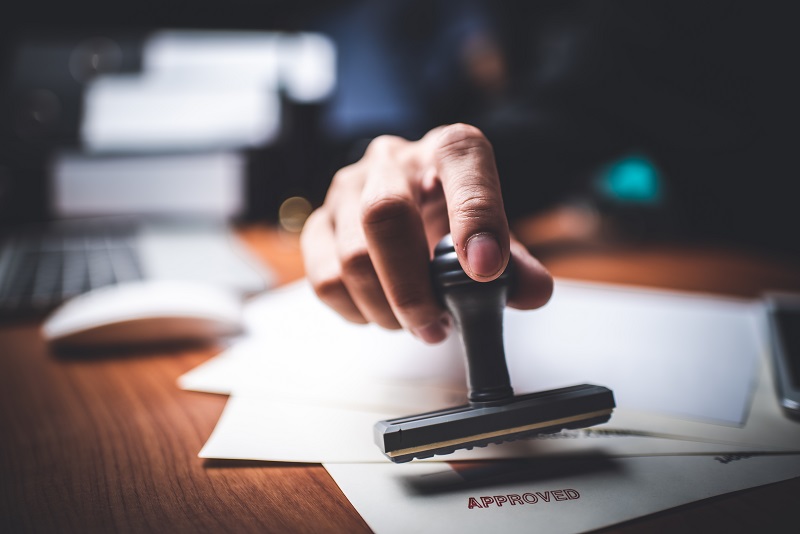
Apply for a Washington State Business License through the Washington State Department of Licensing. This license may be required for tax purposes and to operate legally in the state.
To apply for a Washington State Business License for your credit repair business, you’ll need to go through the Washington State Department of Revenue’s Business Licensing Service (BLS). The process is relatively simple and can be completed online or by mail.
Here are the steps to apply for a Washington State Business License:
Online Application:
- Visit the Washington State Department of Revenue’s Business Licensing Service website.
- Click “File a Business License Application” to start the online application process.
- Follow the prompts to complete the application, providing the necessary information about your business, such as the legal structure, owner information, and business activities.
- Pay the required fees using a credit card or an electronic check.
Paper Application:
- Visit the Washington State Department of Revenue’s Business Licensing Service Forms page.
- Download and print the “Business License Application” form.
- Complete the application form, providing the necessary information about your business.
- Mail the completed application form, along with a check or money order for the required fees, to the address specified on the form.
Once your application is processed and approved, you’ll receive your Washington State Business License. Remember to display the license in a visible location at your place of business, as required by state law.
Please note that the information provided here is for general guidance only, and it’s essential to consult with a legal professional to ensure you meet all requirements before starting your credit repair business in Washington State.
Compliance with CROA
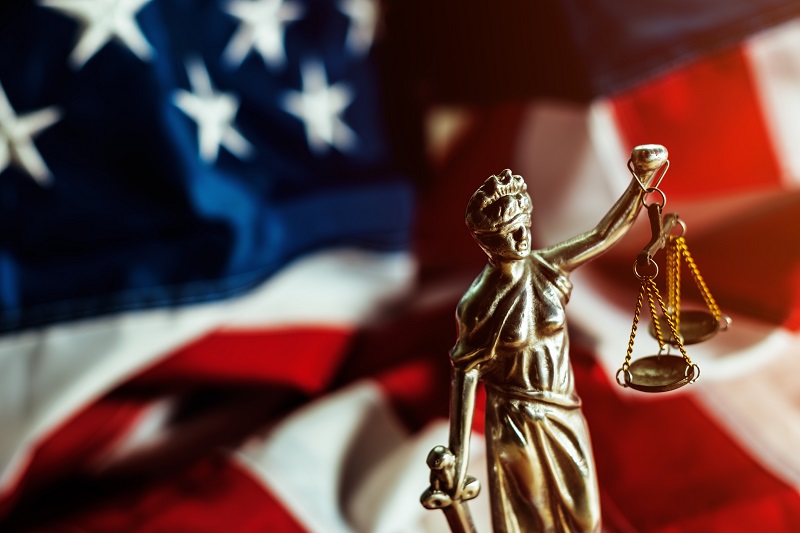
The Credit Repair Organizations Act (CROA) is a federal law that governs credit repair businesses. Ensure your business complies with all CROA provisions, such as providing written contracts, not charging upfront fees, and making clear disclosures to clients. There are several federal laws that regulate credit repair, including:
The Fair Credit Reporting Act (FCRA):
The FCRA is the main federal law governing credit reporting and contains provisions that require credit reporting agencies to ensure the accuracy and fairness of credit reports, as well as provide consumers with the right to dispute errors and have them corrected.
The Credit Repair Organizations Act (CROA):
This law regulates companies that offer credit repair services to consumers and requires them to provide consumers with certain disclosures and protections. It also prohibits credit repair companies from making false or misleading statements and requires them to provide consumers with a written contract detailing the services they will provide.
The Fair Debt Collection Practices Act (FDCPA):
The FDCPA regulates the practices of debt collectors and prohibits them from engaging in abusive, deceptive, or unfair practices. This law also gives consumers the right to dispute debts and requests that debt collectors stop contacting them.
The Equal Credit Opportunity Act (ECOA):
The ECOA prohibits discrimination in credit transactions on the basis of race, color, religion, national origin, sex, marital status, age, or the receipt of public assistance.
The Truth in Lending Act (TILA):
The TILA requires lenders to provide consumers with accurate and understandable information about the costs and terms of credit, including the annual percentage rate (APR) and other fees and charges.
The Revised Code of Washington (RCW) is the compilation of all permanent laws currently in force in the state of Washington. RCW § 19.134 et seq. refers to a range of statutes within Title 19, Chapter 134, which is titled “Debt-Adjusting.”
Title 19 primarily deals with business regulations, and Chapter 134 specifically addresses the regulation of debt-adjusting practices in Washington State. The purpose of these statutes is to protect consumers and provide guidelines for businesses that offer debt-adjusting services.
Some key provisions within RCW § 19.134 et seq. include:
- Definitions (RCW § 19.134.010): This section provides definitions of terms used in the chapter, such as “debt adjuster,” “debt adjusting,” and “debt pool.”
- License requirement (RCW § 19.134.020): This section mandates that any person engaging in debt adjusting must obtain a license from the Washington Department of Financial Institutions.
- Application For License (RCW § 19.134.030): This section outlines the process of applying for a debt adjuster license, including the required application forms, fees, and surety bond.
- Fees (RCW § 19.134.040): This section sets forth the fees and other charges that may be collected by debt adjusters.
- Trust Account (RCW § 19.134.050): This section requires debt adjusters to maintain a trust account in a financial institution for holding and disbursing funds paid by or on behalf of debtors.
- Recordkeeping (RCW § 19.134.060): This section outlines the recordkeeping requirements for debt adjusters, such as maintaining records of all transactions and providing annual reports to the department.
- Investigations, Hearings, and Penalties (RCW § 19.134.070): This section grants the department authority to conduct investigations, hold hearings, and impose penalties for violations of the chapter’s provisions.
- Unlawful Acts (RCW § 19.134.080): This section enumerates acts that are considered unlawful under this chapter, including misrepresentation, fraud, and charging excessive fees.
Please note that while RCW § 19.134 et seq. primarily pertains to debt adjusting, it’s essential to review any relevant statutes and consult with a legal professional to ensure compliance with all applicable laws and regulations when starting a credit repair or debt adjusting business in Washington State.
Business Insurance
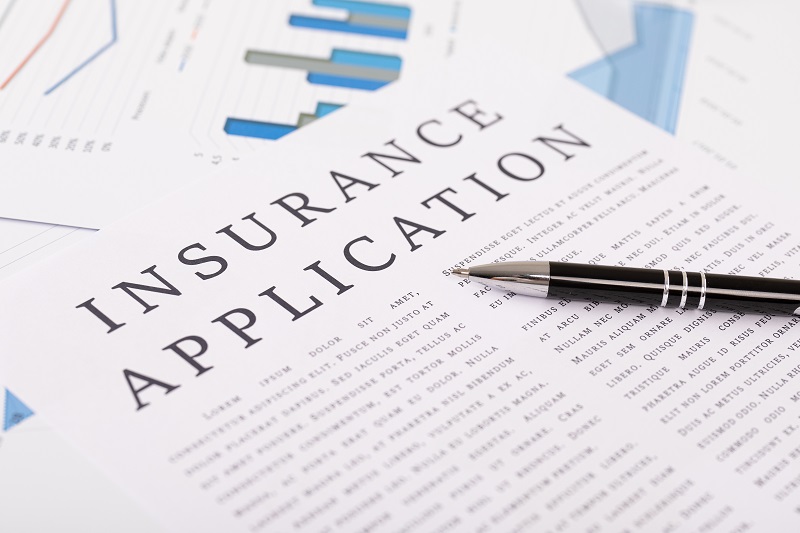
Obtain appropriate insurance coverage for your business, including general liability insurance and, if applicable, workers’ compensation insurance. There are several types of business insurance that are available in Washington state, including:
- General Liability Insurance: General liability insurance provides coverage for bodily injury, property damage, and other liability claims that may arise from your business operations.
- Professional Liability Insurance: Professional liability insurance, also known as errors and omissions insurance, provides coverage for claims arising from professional services or advice you provide.
- Workers’ Compensation Insurance: Workers’ compensation insurance provides benefits to employees who are injured or become ill on the job.
- Property Insurance: Property insurance provides coverage for damage to your business property, including buildings, equipment, and inventory.
- Business Interruption Insurance: Business interruption insurance provides coverage for losses that may occur when your business operations are interrupted due to a covered event, such as a fire or natural disaster.
- Cyber Liability Insurance: Cyber liability insurance provides coverage for data breaches and other cyber threats that may affect your business.
- Commercial Auto Insurance: Commercial auto insurance provides coverage for vehicles used for business purposes.
Marketing And Advertising Compliance

Make sure your marketing materials and advertising campaigns comply with federal and state regulations, including truth-in-advertising laws and the Federal Trade Commission (FTC) guidelines.
In Washington State, credit repair companies are subject to various state and federal laws and regulations related to marketing and advertising, including:
The Washington State Consumer Protection Act (CPA):
The CPA prohibits unfair or deceptive acts or practices in the advertising, marketing, and sale of goods and services. This includes credit repair services.
Credit Repair Organizations Act (CROA):
The CROA regulates the practices of credit repair organisations and requires them to provide certain disclosures to consumers, including information about their services and fees.
The Truth in Lending Act (TILA):
The TILA requires lenders to provide accurate and understandable information about the costs and terms of credit, including the annual percentage rate (APR) and other fees and charges.
When marketing and advertising credit repair services in Washington, companies must ensure that their advertisements are truthful and not misleading. They must also disclose important information to consumers, including their fees and the services they provide.
Additionally, credit repair companies must comply with all state and federal laws related to credit repair and consumer protection.
It’s important for credit repair companies in Washington to consult with an attorney or compliance expert to ensure that their marketing and advertising practices are in compliance with all applicable laws and regulations.
Ready to start your credit repair business in Washington?
Make sure you are informed and compliant with the latest state laws.
Click now to learn more.
We’ve come to the end of our comprehensive guide on the laws for starting a credit repair business in Washington. By ensuring compliance with the specific regulations discussed in this article, you can confidently launch and operate a credit repair business in the state, fostering trust, and helping individuals achieve their financial goals.
Bonus: Now that you have read this article, why not take your new skill and start your own credit business helping others? We have free training that can help you do just that.


